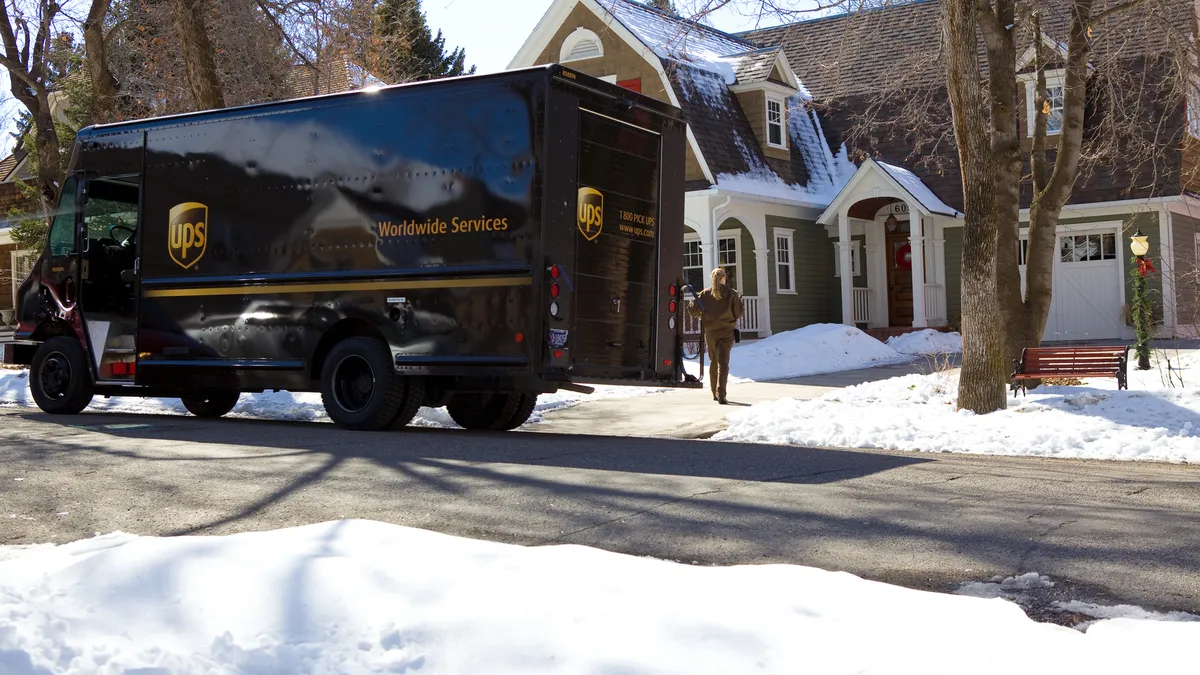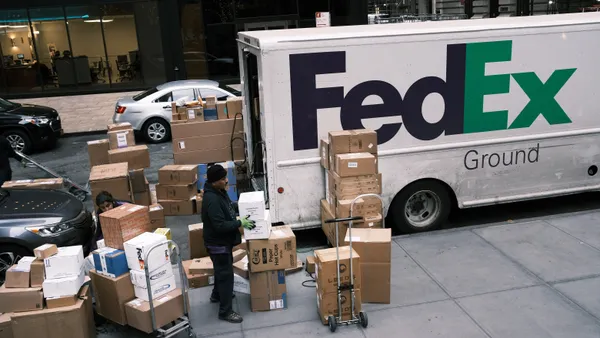Dive Brief:
- UPS announced on Monday it expects to hire 100,000 workers for peak season this year, made up of non-permanent positions with full, part-time or flex schedules and access to healthcare and retirement benefits.
- The carrier sought to hire 100,000 seasonal employees last year as well, however, this year, pay will range from $14 to $30 an hour depending on the job, up from a $10.10 per hour minimum for similar seasonal positions last year, according to a Reuters report. In addition to potentially higher wages, UPS spokesperson Dan McMackin told Supply Chain Dive via email that UPS' college tuition reimbursement program and the company's history of hiring seasonal employees permanently are added incentives for applicants.
- McMackin said the carrier is "hiring part-time package handlers, full time drivers and part-time driver helpers." The roles will be dispersed across the country with "a portion of the seasonal hires ... needed to staff temporary facilities that UPS builds just for the seasonal shipping rush, in addition to its permanent package hubs," according to a press release.
Dive Insight:
2019 is expected to bring a record-breaking holiday season and will "nearly double" its average delivery rate of 20 million packages per day this peak season, UPS COO Jim Barber said in a statement.
Despite the anticipated flood of packages, UPS told Reuters its investments in automation have helped to boost operating efficiency, allowing the carrier to keep seasonal hiring numbers constant despite an uptick in parcel volume, or any additional Amazon packages the carrier might receive now that FedEx is no longer delivering the retailer's cargo.
In addition to UPS' investments in automation to keep things running smoothly during peak season, the carrier's decision to raise seasonal wages could be a strategic move as well. Overall low unemployment (3.7%) is driving employers across industries to raise wages to compete for new hires.
During peak season, retailers, carriers, 3PLs and "anyone who's got massive warehouses and products that need to get out the door, they're all going for that same seasonal help," Frank Poore, CEO and founder of CommerceHub, told Supply Chain Dive in an interview. As a result, he said there isn't a lot of talent to go around and competition for workers is growing, meaning firms are more willing to open their wallets.
"It's a big move for [UPS] to increase their labor costs by 40%," Poore continued, "but my sense is nationwide the employment market is pretty solid ... so you got to offer the right amount to be competitive."













